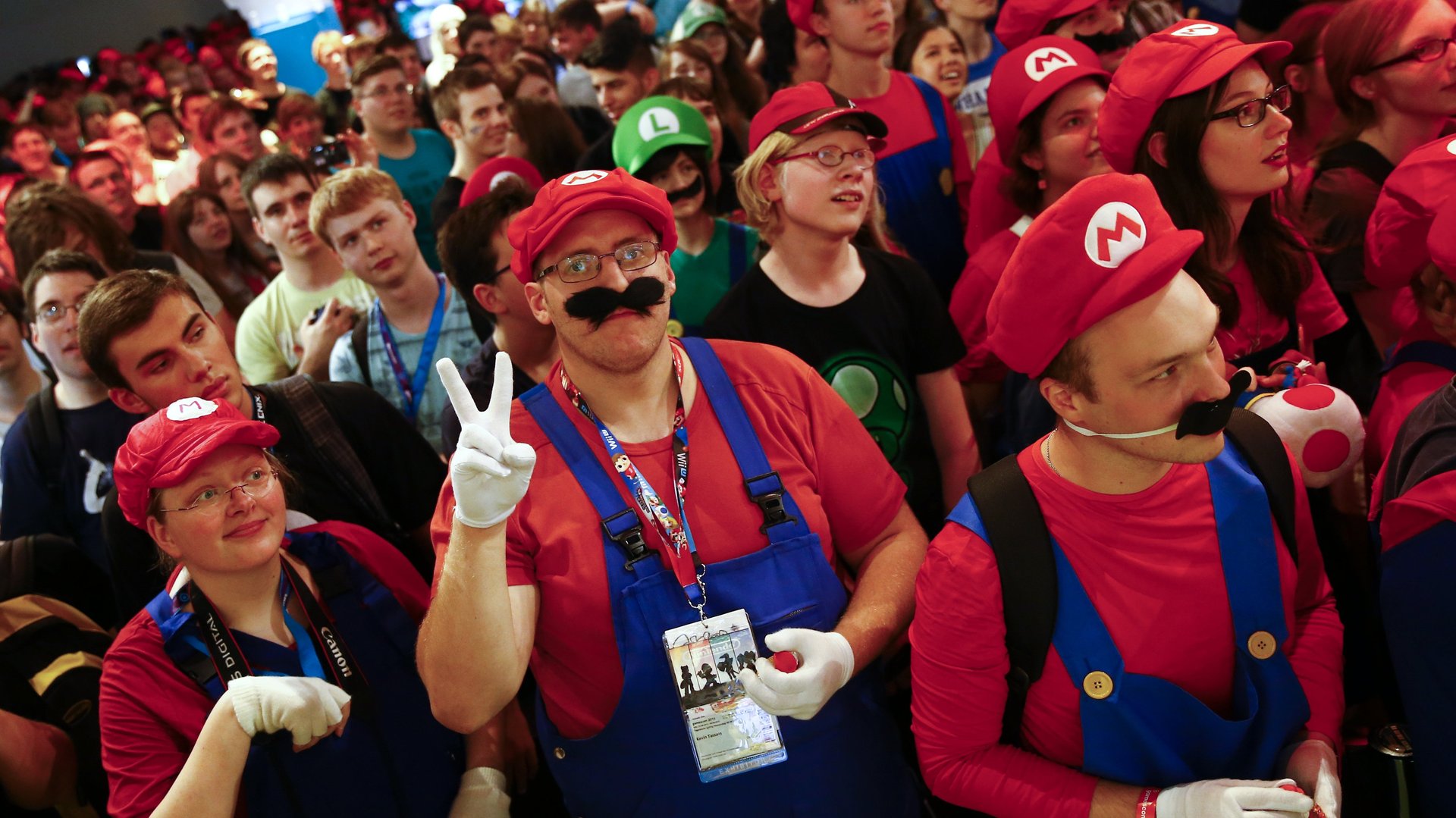Super Mario Run looks like it’s going to be a massive hit for Nintendo before it’s even out
Next week, Apple’s iOS App Store will face one of its greatest tests to date: Nintendo’s favorite son, Super Mario, makes his mobile-game debut on Dec. 15, and millions of people are expected to download it.


Next week, Apple’s iOS App Store will face one of its greatest tests to date: Nintendo’s favorite son, Super Mario, makes his mobile-game debut on Dec. 15, and millions of people are expected to download it.
The side-scrolling Mario game is Nintendo’s first proper foray into mobile gaming. That’s discounting the Kafkaesque madness that was Miitomo, an avatar-based social network with mini-games that Nintendo released in March; smash hit Pokémon Go, which was actually developed by The Pokémon Company (a joint-venture partly owned by Nintendo); and Niantic, an augmented-reality game company spun out from Google. Super Mario Run was developed by Nintendo itself, with input from longtime Nintendo visionary Shigeru Miyamoto, who created Mario, Donkey Kong, Zelda, and myriad other Nintendo characters and franchises.
The game seems poised to be a hit—and potentially a windfall for Nintendo. Apple CEO Tim Cook said in October that more than 20 million people had signed up to receive a notification when Super Mario Run becomes available. The game will run players $10 in the app store—fortunately, it skips the in-app purchases that can make mobile gaming feel like death by a thousand cuts—and if all 20 million download it, that alone would generate roughly $200 million in sales. Apple tends to take a 30% cut of App Store revenue, which means it would get about $60 million just for listing Nintendo’s game. Mario’s makers would receive roughly $140 million just from first-day sales.
Not everyone is that optimistic. Mobile app analytics firm SensorTower said in a blog post that the game’s high cost will likely scare off some portion of those 20 million. It’s estimating first-month revenue of around $70 million, roughly half as much as Pokémon Go generated in the same time period. Even that more subdued figure would make Super Mario Run the third-highest-grossing iOS game launch of all time, according to SensorTower.
All this is great news for Nintendo. While Pokémon Go‘s popularity sent Nintendo’s stock briefly skyrocketing, it fell back to earth as investors realized the company itself was making very little off the game. Revenue from Super Mario Run, on the other hand, will be almost entirely Nintendo’s.
Whether Nintendo can make a sustainable business model out of repackaging nostalgia remains to be seen, but the newest Mario adventure seems like a smart move, especially considering the company’s first new console in five years goes on sale in early 2017. Nintendo’s last console, the Wii U, was a massive flop compared with its predecessors, and the company has traditionally resisted developing for mobile. Super Mario Run could be the beginning of a reversal there, and may help Nintendo diversify its revenue away from consoles that take years to develop and have far more riding on them when they fail. One dud mobile game has far less impact on a company’s bottom line than the R&D, marketing, and logistics of an entire dud console.